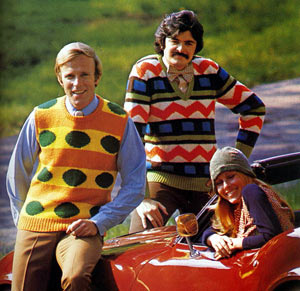One of the biggest running sores in the landscape of CSR is the fashion industry.

Clothing manufacture in the UK (outside of Jermyn Street and Saville Row) appears to have all but died out and those garment factories which do still exist struggle to compete with cheap imports from the Indian subcontinent and China.
Trouble is the cheapness of those imports have generally come from grave human rights abuses which, for many a decade, passed along unnoticed and uncommented upon.
Now that consumers are more knowledgeable, shocking health and labour conditions have been uncovered. Fashion companies throw up their hands and say “we didn’t know”. Right you are then, so do something about it.
One of the ways fashion companies (labels in other words, not retailers) can “do something” is through participation in the Fair Wear Foundation (FWF).
FWF is starting to make a large impact upon fashion labels and their supply chains. Last year alone it grew by over a third and is currently embarked upon a series of seminars in China “to facilitate exchanges of insights and perspectives between FWF, its members and their suppliers, and representatives of local stakeholders”.
It’s this emphasis on engagement which makes FWF stand out from many other certification schemes. Rather than dreaming up a set of standards which become a checklist for auditors on occasional factory visits, it works in a multi stakeholder environment to improve processes in both supply and purchasing companies in order to acheive sustainable and ongoing workplace improvements.
Ambitious, yes, but also down to earth and straightforward.
The eight Labour Standards FWF expects its members to support and promote are largely based upon the International Labour Organisation Conventions and the United Nations Declaration on Human Rights, as are most labour orientated standards.
What makes them remarkable is that there are only eight of them and they’re pretty direct and succinct in what they expect from FWF’s signatories.
This makes them an exceptionally good list of subjects for any fashion house, retailer .. or even anyone with a supply chain, to discuss on their websites and even report against.
The standards are:
- Employment is freely chosen. No use is made of bonded, forced or prison labour.
- There is no discrimination anywhere in the organisation; all relationships between the employer and the employee will be based upon equal opportunities alone.
- Child labour is not used; no children of compulsory school age or younger than 15 years old may be employed; children younger than 18 years old may not do work which may harm them physically, mentally or morally.
- Employees’ rights of freedom of association and collective bargaining must be upheld; employees’ representatives may not be discriminated against or impeded in the fulfilment of their duties.
- Wages will always be of a liveable amount and no illegal deductions or deductions on disciplinary grounds will be made; even after deductions an employee’s wage must allow them and their family some discretionary income.
- Employees will be expected to work a maximum of 48 hours in most weeks; overtime will be occasional and voluntary, will not exceed 12 hours in a week and will be paid at a premium; employees must have at least one day off in seven.
- A safe and healthy working environment will always be provided by the employer; physical and sexual threats or abuse, intimidation and unusual punishments are strictly forbidden.
- Obligations to regular employees shall not be avoided through the use of contract, labour only or apprenticeship schemes; younger workers will be given the opportunity to participate in training schemes.
When you look at it from this point of view, there are many people in the UK whose employment is against these standards… in practice if not in spirit.
Considering and discussing these topics would be a good move for many corporate websites; fashion manufacturers and retailers in particular. Many use the throwaway line “we comply with all regulatory requirements” without giving the transparency high-bar CSR requires.
Going that extra mile will make a huge difference to consumers and investors alike.
Picture Credit: Women’s Day – Fashion Men of 1971 by Todd Ehlers under Creative Commons Share Alike License.
A former CTO, Chris has a broad and varied background. He’s been involved with blue chips, consultancies & SMEs across a wide variety of sectors and has worked in Europe, the Middle East and Australia.
In 2007 he decided to combine his knowledge of business and IT with his passion for all things sustainable and has been busy writing ever since. However, his greatest ambition remains to brew the perfect cup of coffee.